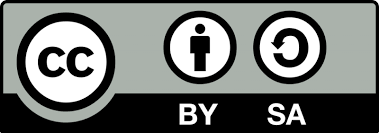Spanish Education Inspectorate (CIE): Access and Training
DOI:
https://doi.org/10.23824/ase.v0i43.966Downloads
Abstract
The aim of this essay is to reflect on the selection and training of education inspectors in Spain. The selection of officials for the Education Inspectorate is first discussed, reflecting and analysing from various perspectives including the necessary training, the meritocratic system, the tribunals and examinations, and offering innovative proposals to ensure that selection processes attract and retain the best talent as far as possible. Secondly, the objective is strategic planning, for a fully flexible and adaptive training to develop their specific skills and abilities so that they can face current and future challenges, characterized by a linear movement in many aspects (classical opposition) but exponential in others (IA). Finally, in order for these new Inspectors of education to comply with the principles of effectiveness and efficiency in the 21st century, a modular training is proposed in the form of a dynamic combination of traditional values and skills required by the present environment.
References
Acosta, P. (2023). El aprendizaje permanente en el empleo público. Revista Espacios de Educación Superior (ES de ES). Recuperado el 23/06/25 de https://www.espaciosdeeducacionsuperior.es/24/02/2023/el-aprendizaje-permanente-en-el-empleo-publico/
Belmonte Martínez, I. M. (2024). Cambios y tendencias de la formación y el aprendizaje en las Administraciones públicas del siglo XXI. Documentación Administrativa, 13, 46-70. https://doi.org/10.24965/da.11478
Buj Gimeno, A. (1992). Inspección técnica, sistema educativo e innovación. Teoría de la Educación, 4, pp. 185-207. Universidad Complutense, Madrid.
Cabrales, A. y Sanz, I. (Coords.) (2024). Economía de la Educación. Madrid. Editorial Centro de Estudios Ramón Areces.
Cabrera-Domínguez, J. M. (2025). El nuevo régimen de habilidades del empleado público. Documentación Administrativa, (13), 121–138. https://doi.org/10.24965/da.11454
Campos Barrionuevo, B. (2024). La Inspección Educativa. Un modelo de cualificación institucional ante los retos del siglo XXI: visión estructural y funcional. En Avances en Supervisión Educativa, ase41.
Castán Esteban, J.L. (2018) La formación del Inspector de Educación del siglo XXI. La inspección de Educación en España: una visión de futuro. Cuadernos de Pedagogía nº 494, pg. 73-79.
Cortina, A. (2013). La Ética. Ed. Paidós
De la Nuez, E. (2018). Acceso a la función pública: atraer talento y cambiar el modelo. Revista vasca de Gestión de Personas y Organizaciones Públicas. Nº especial 2/2018. Págs. 86-97.
Ehren, M. (2016, ed.), Methods and Modalities of Effective School Inspections. Accountability and Educational Improvement. Springer International Publishing Switzerland. https://doi.org/10.1007/978-3-319-31003-9.
Galicia Mangas, FJ. (2019). La Inspección de educación en la Unión Europea. Aula, 25, Ediciones Universidad de Salamanca 2019, pp. 129-146.
- (2024). El futuro de la inspección de educación del siglo XXI: desafíos y oportunidades. Avances en Supervisión Educativa 41. https://doi.org/10.23824/ase.v0i41.851
Hontañón Talledo, A. (2022). La formación inicial y permanente de los inspectores de educación en España. En Revista Supervisión 21, nº 63. http://usie.es/supervision-21/no-63-enero-2022/.
INAP (2025). Estrategia de aprendizaje INAP 2025-2028. Instituto Nacional de Administración Pública, 2025. ISBN 8470887165, 9788470887161
López del Castillo, M.T. (2013). Historia de la inspección de primera enseñanza en España. Ministerio de Educación, Cultura y Deporte.
MEFPyD. (2025). Proyecto de Real Decreto por el que se regula la inspección educativa. Ministerio de Educación, Formación Profesional y Deportes
OECD (2017), Skills for a High Performing Civil Service, OECD Public Governance Reviews, OECD Publishing, Paris, https://doi.org/10.1787/9789264280724-en.
Pintos Santiago, J. (2017). Calidad, transparencia y ética pública. INAP
Piñel Vallejo, S. (2019). Competencias profesionales de la inspección de educación (esbozo de necesidades formativas). En Revista Supervisión 21, nº 51. http://usie.es/supervision-21/no-51-enero-2019/.
Ramió Matas, C. (2015): La Administración Pública del Futuro: La Administración “2050”. GIGAPP Estudios/Working Papers. Grupo de Investigación en Gobierno, Administración y Políticas Públicas. Instituto Universitario de Investigación Ortega y Gasset. Madrid.
Rodríguez Bravo, M, et al (2019). El acceso a la Inspección Educativa en España. Un estudio mediante la técnica Delphi. Revista “Avances en supervisión educativa”, nº 31 https://doi.org/10.23824/ase.v0i31.644
Rodríguez Bravo, M. (2021). (Coord.) Marco para el buen desempeño de la inspección educativa (MBDIE). Revista Supervisión21. USIE, EDUCANOVA. https://supervision21.usie.es/index.php/Sp21/article/view/586
Royo-Villanova, S. (1950). La formación de los funcionarios públicos. Revista de Administración Pública, (2), 11-34. https://www.cepc.gob.es/publicaciones/revistas/revista-de-administracion-publica/numero-2/la-formacion-de-los-funcionarios-publicos-3
Sira-Santana, G. (2024). El necesario y complejo equilibrio entre los diversos sistemas de selección de funcionarios públicos. Documentación Administrativa, 12, 103-129. https://doi.org/10.24965/da.11334
Sevilla, J., et al. (2010). La reforma de la Administración General del Estado. LID Editorial Empresarial.
Tébar Cuesta, F. (2023). La inspección de educación en los Centros Concertados. Educanova. Serie monográfica número 4. La-inspeccion-de-educacion-en-centros-concertados.-USIE-2024-Educa-Nova.pdf
Torres Vizcaya, M. (2019). La Inspección Educativa: Una mirada desde la experiencia. Ed. La Muralla
Von Hayek, F. A. (2024). El uso del conocimiento en la sociedad. Revista Española De Investigaciones Sociológicas, (80), 215–226. https://reis.cis.es/index.php/reis/article/view/1325
Weber, M. (2012). Sociología del Poder (Los tipos de dominación). Madrid, Alianza Editorial.
How to Cite
Issue
Section
Published
Keywords:
Civil servant, selection, initial training, permanent training, skillsLicense
Copyright (c) 2025 Fernando Tébar Cuesta

This work is licensed under a Creative Commons Attribution-ShareAlike 4.0 International License.

Attribution Share-Alike CC BY-SA
Those authors who have publications with this magazine, accept the following terms:
A) The authors will retain their copyrights, which will be simultaneously subject to the Creative Commons Attribution License that allows others to re-mix, modify and develop on your work even for commercial purposes, provided they credit you And to license their new works under the same terms.
B) The authors will retain the rights of exploitation of the intellectual property of this work, and especially the rights of reproduction, distribution, transformation in any of its modalities and public communication of said work, which will be simultaneously subject to the License Of recognition of Creative Commons that allows others to re-mix, modify and develop on your work even for commercial purposes, provided they credit you and license your new works under the same terms.
Creative Commons Attribution-ShareAlike 4.0 International Public License

